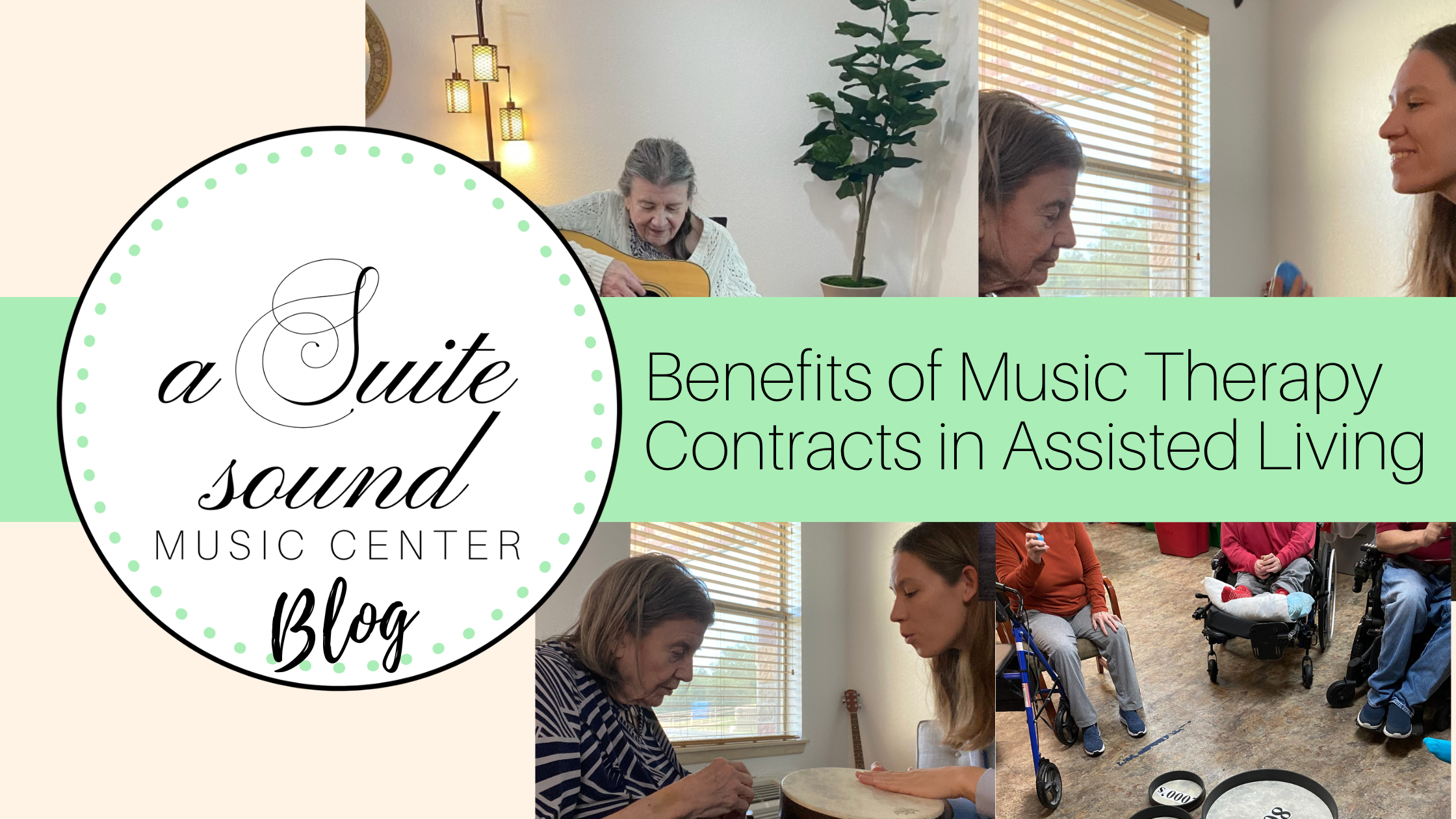Benefits of Music Therapy Contracts in Assisted Living
In the music therapy world, it’s really common to have multiple contracts with different facilities such as rehabilitation facilities, assisted living, schools, and daycare centers.
We have experiences with each of these types of facilities, but today we want to specifically highlight the benefits in working with Assisted Living facilities!
First of all, what are music therapy contracts?
They are an agreement between a music therapist (most often in private practice) and a facility that outlines the services provided, payment, scheduling, etc. Music therapists that have contracts with facilities are NOT employees of the facility, and therefore have more flexibility in scheduling and determining services. Now let’s get back to the benefits of music therapy in general, as well as having contracted music therapists in these settings!
Cost Effective
In an article discussing music therapy at assisted living facilities (McKendree, 2025) you can read that:
“The cost of contracting with a music therapist may vary depending on the market rate in the area and the number of hours per week required.
To make contracting with a music therapist more accessible, facilities can explore creative funding options such as grants, donations, or cost-sharing with families or community organizations. These avenues can help offset the financial investment and ensure that residents have access to the benefits of music therapy.”
The cost of music therapy is discussed and agreed upon for offering continuous weekly/biweekly/monthly services and can sometimes be negotiated or paid through grants or donations. In addition, it is often much more affordable for a facility to contract with a music therapist rather than hire them full time and offer benefits. For the therapist, this can at times be cost effective for them as well, as they can offer multiple sessions (group and individual) at the same location at the facility and limit how much driving time is spent between sessions. In addition, having variety in settings and populations is really important to help prevent burnout in music therapists!
Continuity of Care
Rather than a treatment team of staffed music therapists, an individual that has a contract with a facility ensures continuity of care with the residents. Stability and a familiar face is an important consideration for this particular population of clients.
Promotes Mental Health
Yes, music therapy in general promotes mental health for those receiving services. However, a contract with a facility rather than being full time on staff can, as stated previously, prevent burnout in the music therapist. In addition, the clients receiving music therapy reap the benefits of having a contract music therapist that has variety in their schedule/ populations they serve, and that have the ability to interact with more people/clients of different ages and abilities, that hopefully have a continually refreshed and renewed mind and attitude towards their work and the people they work with.
Tailored Programs
Music therapists have the background education and training necessary to plan sessions that are tailored specifically for the residents they see. This is not a contract-specific requirement, but it is worth mentioning! Music therapists complete initial assessments to set personal goals for each client or for the group, and then typically address progress with quarterly and/or annual evaluations. Music therapy as a service at any facility elevates their value to their residents and their families.
Flexibility
There’s potentially a lot more flexibility in scheduling and scaling when it comes to contract music therapy! There’s also potentially more flexibility in administrative tasks, such as payment options, ways to fund services, actual scheduling of services, and increasing services/number of therapists as needed. In a lot of ways, having a music therapist on contract with your facility is a lot more straightforward and flexible than hiring full or part-time staff members.
Specialized Expertise
This has been mentioned previously, but it’s worth noting again! Music therapy should be valued as a service provided in each facility it’s offered in, and we believe the benefits will speak for themselves. But to name just a couple, residents will have an opportunity to express themselves, bond with family members (if present), and overall improve their quality of life.
Can you think of any others besides these? If you’re a music therapist, do you have a contract with one or more different types of facilities, specifically assisted living?
If you or a loved one are in an Assisted Living facility, do you have a music therapist that comes to provide services at your place of residence?*
Let us know in the comments below!
*Note: Music therapists are not ‘music entertainers.’ While there is a time and a place for performing music, and that is wonderful, music therapists are specifically trained and have an extensive background in music, psychology, and human development that make them uniquely qualified to provide services in this setting.
References:
https://www.themckendree.com/blog/music-therapy-in-assisted-living-benefits-and-programs
https://therapymgmt.com/what-is-contract-therapy/

